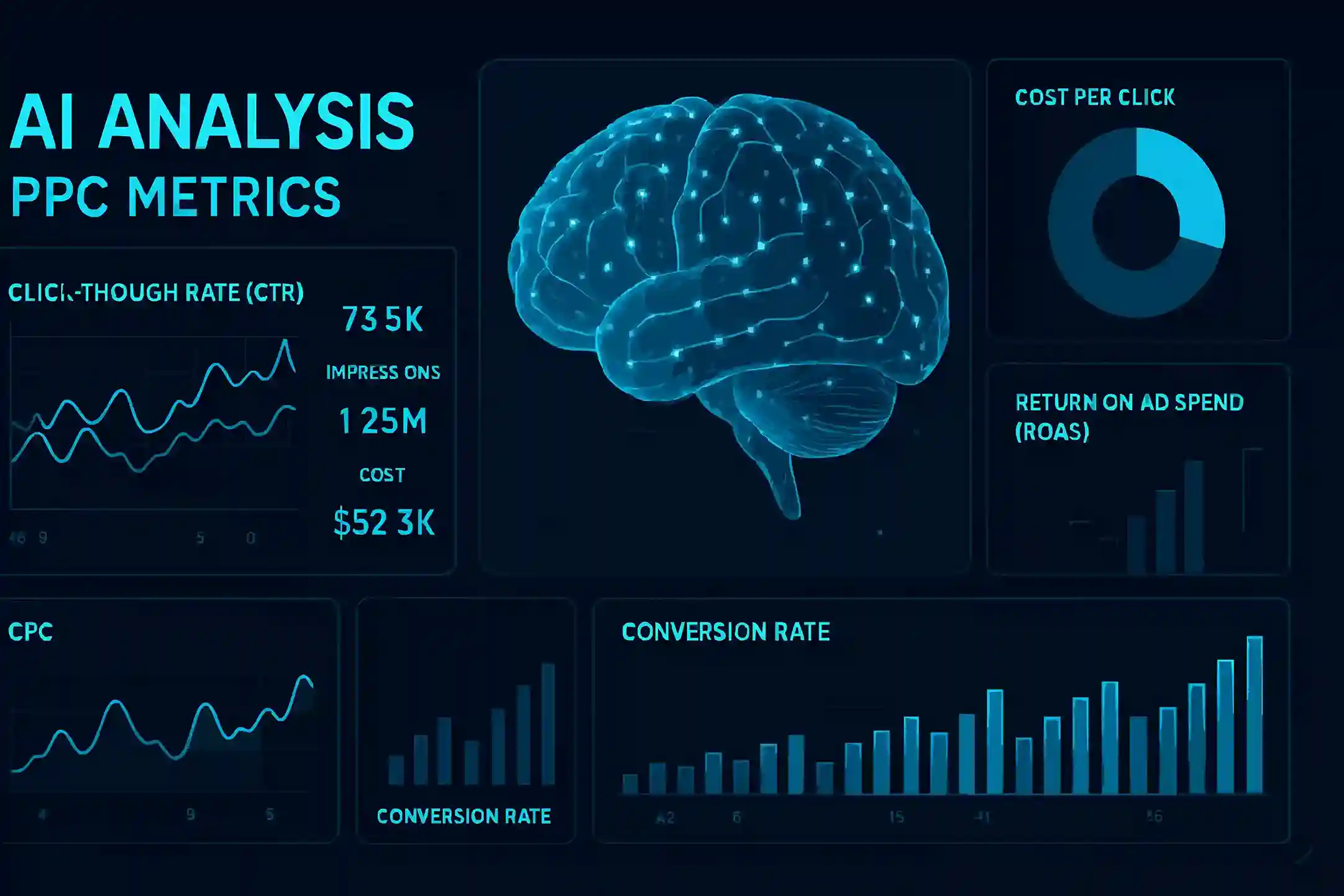Pay-Per-Click (PPC) automation has evolved from manual bid adjustments to sophisticated AI-driven platforms that optimize campaigns in real-time. In 2025, AI-powered tools are critical for gaining a competitive advantage by improving efficiency, targeting, and ROI in PPC campaigns. Automation powered by AI reduces manual workload, enhances ad personalization, and enables data-driven decision-making, making it indispensable for marketers.

What is PPC Automation?
PPC automation refers to the use of software and algorithms to manage and optimize pay-per-click advertising campaigns automatically. It involves automating tasks such as bid management, keyword selection, ad creation, and budget allocation. AI in PPC automation leverages machine learning to analyze large datasets, predict user behavior, and adjust campaigns dynamically to maximize performance.
The Role of AI in PPC Campaigns
AI enhances PPC campaigns by enabling:
- Real-time bid adjustments using predictive analytics
- Dynamic ad personalization based on user behavior and demographics
- Automated creation and testing of ad variations
- Enhanced audience targeting through big data analysis
- Integration of AI chatbots for improved customer interaction directly from ads.
AI PPC tools use machine learning to continuously learn from campaign data, optimizing budget allocation and creative content to improve conversion rates and reduce costs.
Top AI-Powered PPC Automation Tools in 2025
Leading AI-powered PPC tools include:
| Tool | Key Features | Best For |
|---|---|---|
| Albert.ai | Full campaign automation, multi-channel support, real-time optimization | Large businesses, agencies |
| Jasper.ai | AI-generated ad copy, brand voice adaptation | Marketers needing fast, quality ad copy |
| Google Ads Smart Bidding | Machine learning-based bid optimization | Broad advertisers using Google Ads |
| Optmyzr | Automated bid adjustments, keyword recommendations | PPC managers seeking automation |
| Adzooma | Actionable insights, task automation | Small to medium businesses |
| WordStream PPC Advisor | Campaign analysis and improvement suggestions | Businesses wanting data-driven insights |
These tools automate repetitive tasks, optimize bids, create personalized ads, and provide actionable insights, significantly improving campaign performance and ROI.
Benefits of PPC Automation with AI
- Increased ROI: AI-driven optimization can boost PPC ROI by 20-30% through better targeting and bid management.
- Cost Reduction: Automated bid adjustments reduce wasted spend and improve budget efficiency.
- Efficiency: AI automates time-consuming tasks, freeing marketers to focus on strategy and creativity.
- Improved Ad Relevance: Personalized ads increase engagement and conversion rates.
- Data-Driven Insights: AI analyzes vast data sets to uncover trends and opportunities that manual analysis might miss.
How to Implement AI PPC Automation Successfully
- Develop a clear AI PPC strategy aligned with business goals.
- Choose AI tools that integrate well with your existing ad platforms.
- Start with automating repetitive tasks like bidding and reporting.
- Use AI-generated insights to refine targeting and ad creative continuously.
- Monitor AI recommendations but maintain human oversight to ensure brand alignment.
- Test and iterate campaigns frequently to leverage AI’s predictive capabilities fully.
Future Trends: What’s Next for PPC Automation?
- Smarter AI Algorithms: Enhanced predictive bidding and audience segmentation.
- Conversational PPC: Integration of AI chatbots for real-time customer engagement within ads.
- Voice Search Optimization: PPC campaigns adapting to voice queries and natural language processing.
- Cross-Channel Automation: Unified AI platforms managing campaigns across multiple advertising channels seamlessly.
- Greater Personalization: AI creating hyper-personalized ad experiences based on deep user insights.
Frequently Asked Questions (FAQs) about PPC Automation in 2025
1. What is PPC automation?
PPC automation uses AI-powered software and algorithms to manage and optimize pay-per-click advertising campaigns automatically. It handles tasks like bid adjustments, keyword selection, ad creation, and budget allocation to improve campaign efficiency and ROI.
2. How does AI improve PPC campaigns?
AI enhances PPC by analyzing large datasets in real time, predicting user behavior, dynamically adjusting bids, personalizing ads, and optimizing budget allocation. This leads to better targeting, reduced costs, and higher conversion rates.
3. What are the main types of PPC automation?
Common types include bid management automation, ad copy generation, keyword research automation, performance monitoring, and landing page optimization—all powered by AI and machine learning.
4. Which AI tools are best for PPC automation in 2025?
Top AI PPC tools include Albert.ai, Jasper.ai, Google Ads Smart Bidding, Optmyzr, Adzooma, and WordStream PPC Advisor. These tools offer features like real-time bid optimization, automated ad creation, and actionable campaign insights.
5. Can PPC automation help reduce advertising costs?
Yes, automation minimizes wasted spend by adjusting bids and targeting in real time, ensuring budgets are focused on high-performing ads and audiences, thereby reducing overall costs.
6. Is PPC automation suitable for small businesses?
Absolutely. Many affordable AI-powered PPC automation tools cater to small and medium businesses, helping them save time and improve campaign performance without requiring large budgets.
7. Do I still need to monitor my PPC campaigns if I use automation?
Yes. While automation handles many routine tasks, human oversight is essential to set clear objectives, refine strategies, and ensure the AI’s decisions align with your brand goals.
8. How do I start implementing AI PPC automation successfully?
Begin by setting clear campaign goals, selecting the right AI tools that integrate with your ad platforms, defining automation rules, and continuously monitoring and optimizing campaigns based on AI-generated insights.
9. What future trends should I watch for in PPC automation?
Expect smarter AI algorithms, conversational PPC with integrated chatbots, voice search optimization, cross-channel automation, and hyper-personalized ad experiences driven by advanced AI.
10. How does PPC automation impact ROI?
By continuously optimizing bids, targeting, and creative elements, PPC automation can increase ROI by 20-30%, delivering more conversions for the same or lower ad spend.